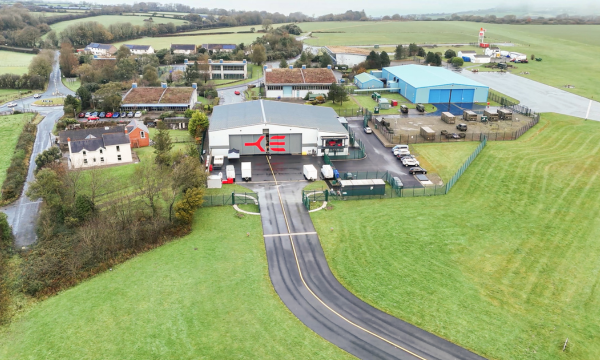Around 1,800 more people a year are needed in construction in Wales but an outdated public perception of the sector means too many overlook it as a career option, despite higher-than-average increases in earnings and strong career prospects, says new report.
- In Wales, pay in construction has risen by 35% over the last ten years compared with 26% across all other sectors in the Welsh economy.
- Only a fifth of people in Wales say they would recommend construction careers to young people – the lowest of anywhere in the UK
- Outdated perceptions about low pay and construction roles being “overly physical” mean many don’t consider jobs in the industry
- 110,000 people in Wales currently employed in construction – 1,800 more a year needed to meet demand
- Inflation, recruitment and bureaucracy cited by construction leaders in Wales as amongst their biggest challenges
The days of construction careers being portrayed as low paid, low skilled, low prospect jobs for academic underachievers should have been confined to history, yet research by a leading industry body shows the sector remains tainted by these outdated misconceptions.
The Welsh construction industry struggles to recruit and faces worker shortages, which threaten to halt economic growth if not urgently addressed. Industry figures* suggest around 1,800 extra people a year need to be recruited in construction jobs in Wales, if the sector is to meet expected demand.
A new report, Building Up Wales – Professional insights from the construction sector in 2023, has been published by the Chartered Institute of Building (CIOB), the world’s largest professional body for the built environment.
It looks at the current economic state of the Welsh construction sector including output and pay and provides insights from CIOB’s members in Wales on the challenges faced by the industry. The report says in Wales pay in construction has risen by 35% over the last ten years compared with 26% across all other sectors in the Welsh economy.
However, in a recent survey*** commissioned by CIOB, when asked about pay in construction, more than half of people in Wales (52%) perceived average earnings to be lower than the true figure.
When it comes to recommending careers in construction to their children or other young people, ten times as many people (22%) said they were very unlikely to recommend a career in construction, as those who said they were very likely (3%).
CIOB says this is a major concern considering the industry’s significant role in Wales and the wider UK achieving not only economic growth, but also levelling up and net zero ambitions.

Caroline Gumble, CEO at CIOB, said:
“Our report highlights just how big a contribution construction makes to the economy yet it’s a sector which is often taken for granted and overlooked at Government level and by individuals who are exploring career options or changing their career path. Our survey shows there are big misconceptions around earning potential, job prospects and working conditions and this is something the sector needs to work together to address if we’re to bridge the existing worker shortfall that will over time become bigger if nothing is done. Without construction workers, including those in IT, planning, administration and management, as well as the frontline trades, there can be no new homes or other infrastructure and our economy will grind to a halt.”
When asked to select words to describe construction jobs, “overly physical” and “dangerous” were among the three top answers from those who took part in the CIOB survey, supporting the belief that such outdated perceptions are a big factor in so many people, particularly women, not considering role in the industry. In reality, increasingly more construction related jobs are office-based or site-based roles using modern technology, that don’t involve much, if any, physical activity.
Caroline Gumble added:
“We know that the construction sector has an image problem, and our survey has thrown up some insightful data on where that is most prevalent. As an industry we must take the lead in promoting construction as a viable career with strong financial and career growth prospects, but we also need the support of education leaders, including careers advisors, to change attitudes and this needs to start with Government. We want to see construction better represented in schemes to promote STEM careers (science, technology, engineering and maths) and vocational qualifications, not just in construction but more widely, given equal esteem with university degrees. Construction must be promoted as a sector in which people can make a positive difference, drive sustainability, improve their communities and leave a real legacy.”
CIOB’s report and consumer research also showed:
- Wales’s construction output in 2022 was more than £5.5 billion, representing 3.2% of the total for Great Britain
- Around 9% of construction workers living in Wales, work outside the country
- Just over a quarter (26%) of respondents in Wales said making the construction sector more attractive and accessible to women will help recruit more people into the industry
- People over 55 years old are least likely to recommend construction careers, and men are more likely to than woman
- People in Wales are least likely to recommend construction careers (20%) while those in London (38%) are most likely
The report also includes insights from CIOB’s members in Wales who expressed that there is a level of “bureaucracy”, particularly around accessing funding and with planning in Wales that is difficult to navigate, leading to delays and wider issues with recruitment and retention of staff. They also say high inflation rates are causing problems with both public and private sector projects, with public bodies in Wales in particular not being agile enough to deal with changing inflation.










